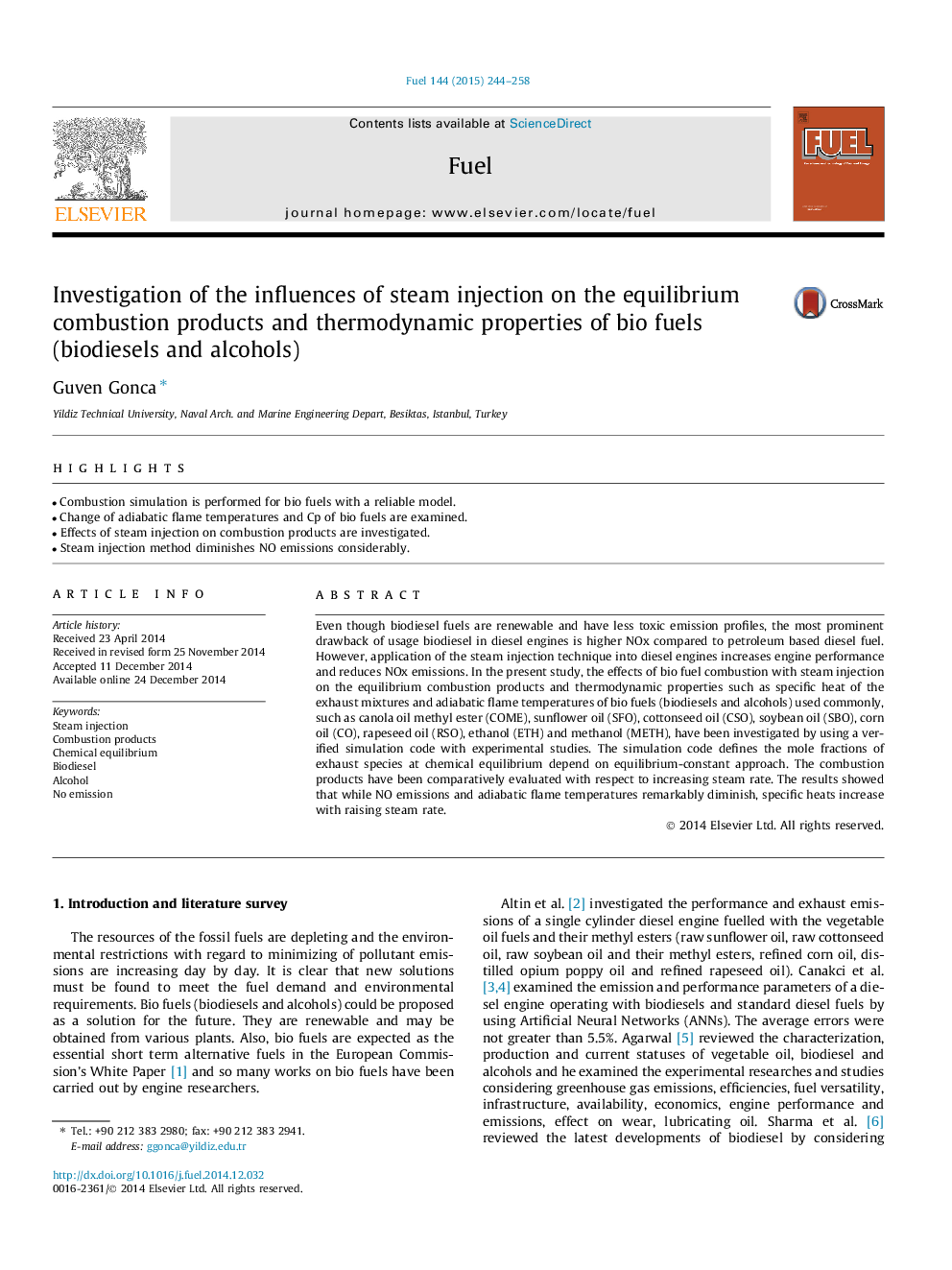| Article ID | Journal | Published Year | Pages | File Type |
|---|---|---|---|---|
| 205849 | Fuel | 2015 | 15 Pages |
•Combustion simulation is performed for bio fuels with a reliable model.•Change of adiabatic flame temperatures and Cp of bio fuels are examined.•Effects of steam injection on combustion products are investigated.•Steam injection method diminishes NO emissions considerably.
Even though biodiesel fuels are renewable and have less toxic emission profiles, the most prominent drawback of usage biodiesel in diesel engines is higher NOx compared to petroleum based diesel fuel. However, application of the steam injection technique into diesel engines increases engine performance and reduces NOx emissions. In the present study, the effects of bio fuel combustion with steam injection on the equilibrium combustion products and thermodynamic properties such as specific heat of the exhaust mixtures and adiabatic flame temperatures of bio fuels (biodiesels and alcohols) used commonly, such as canola oil methyl ester (COME), sunflower oil (SFO), cottonseed oil (CSO), soybean oil (SBO), corn oil (CO), rapeseed oil (RSO), ethanol (ETH) and methanol (METH), have been investigated by using a verified simulation code with experimental studies. The simulation code defines the mole fractions of exhaust species at chemical equilibrium depend on equilibrium-constant approach. The combustion products have been comparatively evaluated with respect to increasing steam rate. The results showed that while NO emissions and adiabatic flame temperatures remarkably diminish, specific heats increase with raising steam rate.
